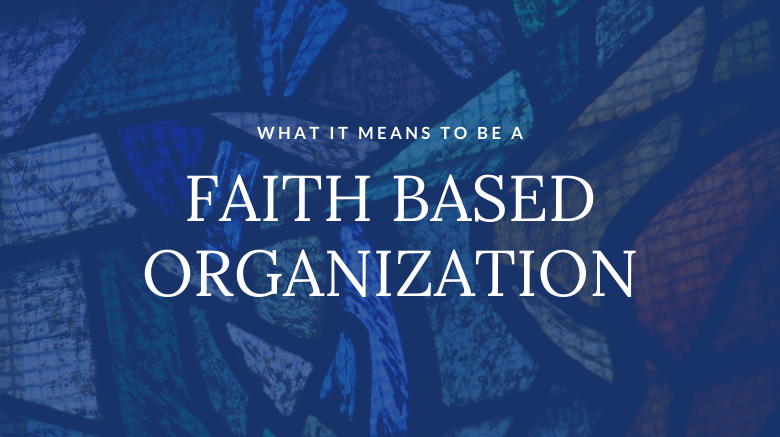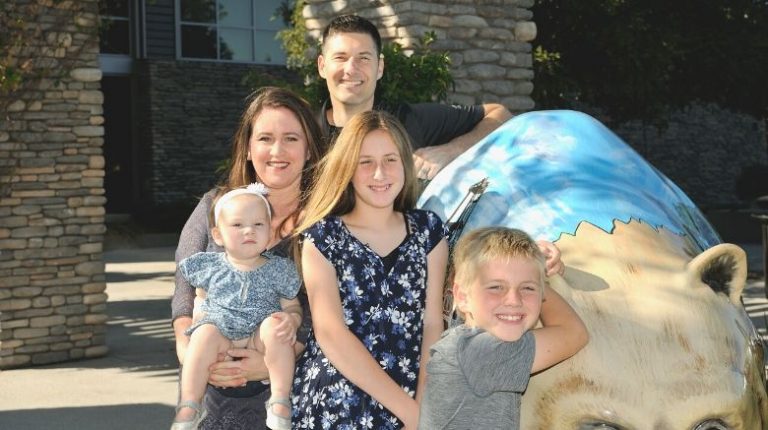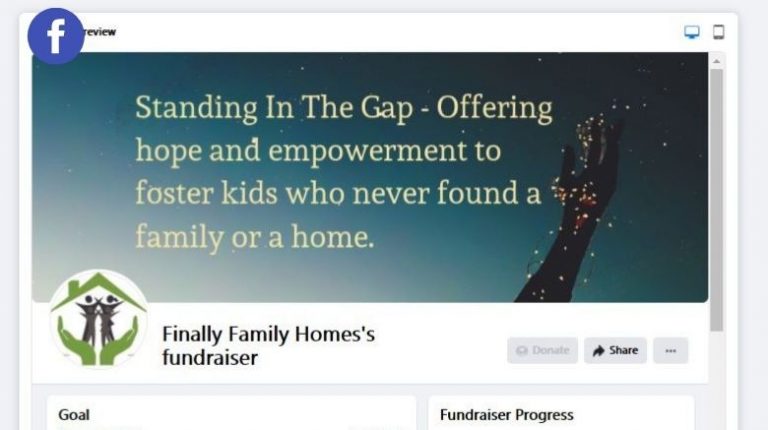Faith-Based Organizations – Powering Faith in Action
Do you want to know more about faith-based organizations and what it means to be one? You may be wondering:
- What does the term faith based mean?
- Is a faith-based organization a church?
- What is the role of a faith-based organization?
And you probably have many more valid, important questions about the implications of being a faith-based organization. Here at Finally Family Homes, we are a faith-based organization.
We know that it’s important to you to understand these things especially as you weigh in on which organizations you want to participate with or support. It’s important to us to be transparent, so we’ll do our best to answer the most commonly asked questions about this aspect of our work below.
What is Considered a Faith Based Organization
Ask 10 people and you’ll get 10 answers. Despite varying characteristics of faith-based organizations, they almost always provide a description of how their organization is influenced, guided by, or focused on honoring or practicing a particular set of beliefs.
This doesn’t always mean that the organization’s activities are faith-focused, but that they certainly wouldn’t act in conflict with the tenets of the faith they hold to.
What’s the meaning of faith-based?
Sometimes being a faith-based organization means that an organization requires certain things of their participants – church or meeting attendance, adherence to certain religious rules, or living according to a set of moral ethics. Being faith-based doesn’t mean that an organization adheres to a particular religion – it can also refer to non-congregational faith beliefs.
Some may be better described as faith-related organizations. These are organizations are founded on the tenets of a particular faith and are influenced by it, but do not necessarily require faith to be shared, and often it is not. Examples of these kinds of organizations are Catholic Charities and Lutheran Services.

This post may contain affiliate links. We earn commissions to support our mission to serve youth in need if you shop through the links on this page. You can read our full affiliate disclosure here.
Is a church a faith-based organization?
Legally, there is no strict definition for faith-based organizations. A church can be a faith-based organization, but not all faith-based organizations are churches.
The IRS distinguishes between churches, faith-based organizations, and religious organizations, but for the most part, they are all treated like charitable non-profits.
Churches are distinguished by being places of worship, so these also include synagogues, mosques, etc. They are basically organized religions with creeds, regular services, and church leadership.
Religious organizations are not tied to a particular church or denomination. They do not hold regular worship services, but do study or promote a particular religion.
What is the role of a faith-based organization?
As indicated above, for each organization the role of being a faith-based organization can mean different things. We can’t speak for other organizations, but we’ll share what it means to us here at Finally Family Homes.
Finally Family Homes was founded by Christians who were inspired by their faith to create this organization for the purposes of honoring God’s call “To act justly and to love mercy and to walk humbly with your God.” (Micah 6:8, NIV).
Because our primary efforts are working towards justice, it may not be obvious right away that we are a faith-based organization. But there is always an element of faith in doing justice work. As Tim Keller put it in Generous Justice, “The pursuit of justice in society is never morally neutral, but is always based on understandings that are essentially religious in nature.”
Justice is always judgemental.
Michael Sandel
Harvard law professor Michael Sandel, who is not a religious believer, says that “justice is always judgmental.” He contends that we do not as humans, nor even as Americans have an absolute definition of justice. The definition of justice is driven by our underlying beliefs, so as our beliefs vary so does the definition of justice.
In other words, our work towards justice is driven and defined by our underlying beliefs. And our underlying beliefs guide our approach to working towards justice.
What being Faith-Based means at Finally Family Homes
At Finally Family Homes, being faith-based means that our why, our sense of what’s just and right, and our values are all guided by the Christian faith. We are not directly linked to any particular denomination.
How Faith Guides Our Why
We believe in honoring God’s heart and directives.
Jesus taught us, “‘Love the Lord your God with all your heart and with all your soul and with all your mind.’” This is the first and greatest commandment. And the second is like it: “‘Love your neighbor as yourself.'”(Matthew 22:37-39).
If we love God with all our hearts, we will care deeply about what He cares about. Throughout scripture, it is evident that God cares for the marginalized and those without support systems.
“Religion that is pure and undefiled before God the Father is this: to visit orphans and widows in their affliction and to keep oneself unstained from the world” (James 1:27, HCSB).
“But you, God, see the trouble of the afflicted; you consider their grief and take it in hand. The victims commit themselves to you; you are the helper of the fatherless” (Psalm 10:14 NIV).
And, of course, as Jesus said, we should love our neighbors as ourselves. In the Old Testament, God established in the law that the Hebrews should care for and give generously to those in need.
“At the end of every three years, bring a tenth of all your produce for that year and store it within your gates. Then the Levite, who has no portion or inheritance among you, the foreigner, the fatherless, and the widow within your gates may come, eat, and be satisfied. And the LORD your God will bless you in all the work of your hands that you do” (Deut 14:28-29, HCSB).
“Provide justice for the needy and the fatherless; uphold the rights of the oppressed and the destitute” (Psalm 82:3).
We believe that this directive and heart to care for the orphan reflects a deeper spiritual truth that before entering into God’s family we were all orphans.
As Jesus prepared for the end of his time on earth, he told his disciples, “I will not leave you as orphans” (John 14:18, NIV).
“For those who are led by the Spirit of God are the children of God. The Spirit you received does not make you slaves so that you live in fear again; rather, the Spirit you received brought about your adoption to sonship. And by him, we cry, “Abba, Father.” The Spirit himself testifies with our spirit that we are God’s children” (Romans 8:14-16).
All who are in Christ are united by adoption. The orphan or person without a parent to go to or rely on is not foreign to us. It’s who we are or were. We did not earn a place in God’s kingdom. We weren’t born into it. We were adopted.
How Faith Establishes Our Beliefs
At Finally Family Homes our work is founded on the following beliefs, and we hold the following to be true.
1. All people are created in the image of God and have inherent dignity and worth.
We believe that everyone: including our leaders, our staff, our volunteers, our supporters, and the youth we serve are equal in inherent worth and dignity.
Related Bible Verses:
“So God created man in his own image, in the image of God he created him“ (Genesis 1:27, ESV).
“With it, we bless our Lord and Father, and with it we curse people who are made in the likeness of God. From the same mouth come blessing and cursing. My brothers, these things ought not to be so” (James 3:8-10, ESV).
2. We live in an unjust and broken world that needs healing.
We believe wonderful people are sometimes recipients of evil and cruel people are sometimes recipients of good.
Therefore:
- We believe that a person’s current circumstances often do not reflect justice.
- We believe that who you are is not what happened to you. We do not judge a person by their circumstances.
We believe that no one is perfect and do not expect perfection from others.
Related Bible Verses:
“For all have sinned and fall short of the glory of God” (Romans 3:23, ESV).
“Surely there is not a righteous man on earth who does good and never sins” (Ecclesiastes 7:30).
3. There is only one true Judge, and His justice calls us to care for those in need.
We believe it is not our place to judge others but to encourage them towards righteousness.
We believe working towards righteousness means caring for the vulnerable and
We believe forgiveness is free, but trust is earned. The vulnerable have had their trust betrayed, and we need to earn their trust and have grace for their journey.
Related Bible Verses:
“Therefore you have no excuse, O man, every one of you who judges. For in passing judgment on another you condemn yourself, because you, the judge, practice the very same things” (Romans 2:1, ESV)
“There is only one Lawgiver and Judge, the one who is able to save and destroy. But you—who are you to judge your neighbor?” (James 4:12, ESV).
“Learn to do what is good. Seek justice. Correct the oppressor. Defend the rights of the fatherless. Plead the widow’s cause” (Isaiah 1:17, HCSB).
4. Give without expectation.
We give to those in need because they are in need, and their needs matter.
We do not require participants to adhere to a particular set of beliefs or practices to receive services.
Related Bible Verses:
“But love your enemies, and do good, and lend, expecting nothing in return, and your reward will be great, and you will be sons of the Most High, for he is kind to the ungrateful and the evil” (Luke 6:35, ESV).
“Then Jesus said to his host, ‘When you give a luncheon or dinner, do not invite your friends, your brothers or sisters, your relatives, or your rich neighbors; if you do, they may invite you back and so you will be repaid. But when you give a banquet, invite the poor, the crippled, the lame, the blind, and you will be blessed. Although they cannot repay you, you will be repaid at the resurrection of the righteous.’” (Luke 14:12-14, NIV).
5. No good thing should be held back.
The gospel is the good news that has the power to heal and transform. It is a particularly beautiful offering to those who have no parents to call on in times of need.
“Father of the fatherless and protector of widows is God in his holy habitation” (Psalm 68:5, ESV).
Christianity is a kingdom of adoption. All who choose to follow Christ enter into God’s family through adoption.
“For you did not receive the spirit of slavery to fall back into fear, but you have received the Spirit of adoption as sons, by whom we cry, ‘Abba! Father!’” (Romans 8:15, ESV).
While we don’t require participation in faith-based activities, we do openly invite everyone to opportunities to hear that there is a Father in Heaven who knows, loves, and wants to be a Father to them.
And we respect the right of anyone who says no to our invitation without consequence to how we treat them.
“The kingdom of heaven is like a king who prepared a wedding banquet for his son. He sent his servants to those who had been invited to the banquet to tell them to come, but they refused to come” (Matthew 22:2-3, NIV).
Related Bible Verses:
“For what will it profit a man if he gains the whole world and forfeits his soul? Or what shall a man give in return for his soul?” (Matthew 16:26).
“Do not withhold good from those to whom it is due,
when it is in your power to do it” (Proverbs 3:27, NIV).

How Our Beliefs Shape Our Values
Our beliefs shape our values and, ultimately, our attitudes and actions. The following values govern the way we behave, communicate, and interact with others.
Humility – We value approaching each other humbly, honoring others as valuable and worthy of our time, respect, and effort. We believe in being slow to speak and quick to listen.
Showing Up – We value the simple act of showing up and offering quality presence.
As Dr. Dan Siegel points out, “One of the very best scientific predictors for how any child turns out—in terms of happiness, academic success, leadership skills, and meaningful relationships—is whether at least one adult in their life has consistently shown up for them.”
In a world where we are all stretched thin and pulled in various directions – we believe that the best way forward starts with showing up.
Partnership – We value pursuing progress in community, collaborating, and walking alongside those who have something to offer and something to give. We look for opportunities to collaborate with existing resources and organizations in order to have the most effective impact.
Sustainability – We prioritize strategies and approaches that have a lasting impact over band-aids. Though we’ll hand out band-aids when needed, too.
Healthy Boundaries – We value creating and holding to healthy boundaries. One thing that foster youth often have experienced is unhealthy boundaries.
Lead By Example – We believe our leaders should be held to a higher standard than those they serve and should lead by example.
A Personal Touch – We prioritize personalization over efficiency. We make the extra effort to connect with each person, honoring their uniqueness and helping them feel seen and valued, just as Jesus did with each person he met.
Want to know more about Finally Family Homes?
Learn more about our work to care for youth aging out of foster care without a home or family.
Get to know more about who we are.







